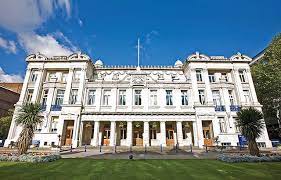Queen Mary University of London: Boosted by $3 million in seed funding, Queen Mary spin-out heralds developments in cancer immunotherapies and a vision of immune system stimulation
VacV was developed out of Barts Cancer Institute, one of the top cancer research centres in the UK, and Queen Mary University of London. It follows 20 years of research by Queen Mary’s immunotherapy experts Professor Yaohe Wang and Professor Nicholas Lemoine, as well as their team of internationally renowned cell and gene therapy researchers.
Work on VacV’s therapy has been focused on safety and performance within a clinical environment, rather than in patients, prior to this clinical testing taking place.
Immunotherapies, which enable a patient’s immune system to recognise and target cancer cells, have made a significant difference to cancer patients over the last decade. However, many patients fail to respond. Oncolytic viruses, which VacV is centred around, can directly kill cancer cells, sensitise solid tumours and their microenvironment, and sensitise more patients to immunotherapy. Thus, more vital research is required to ultimately improve patient outcomes.
Many oncolytic viruses, including Amgen’s FDA-approved Imlygic, are injected directly into the tumour. In contrast, researchers have shown the immune-evasion capabilities of Vaccinia virus enable it to reach tumours after intravenous administration, suggesting it may be able to unlock systemic delivery.
VacV is one of 26 active spinout companies from Queen Mary, with Queen Mary Innovation managing the University’s portfolio and intellectual property. In doing so, it helps to boost research at Queen Mary alongside maximising its economic and societal impact.
Dr Phil Clare, CEO of Queen Mary Innovation (QMI) Limited, said: “This is a fantastic boost for a project that was started by a leading Queen Mary researcher and has truly blossomed. The hope is that one day it will help patients on our East London doorstep as well as all over the world.
“QMI’s experienced team work closely with Queen Mary’s academics to raise funds to commercialise their innovative clinical research and we are pleased to see ever more opportunities arising from Queen Mary’s world leading research. VacV, and companies like them, take innovations from the lab to patients and markets in every corner of the globe.”
Queen Mary’s Professor Yaohe Wang, Chief Scientific Officer of VacV Biotherapeutics, said: “Our approach focuses on stimulating the patient’s immune system to fight cancer through the delivery of immune-modulating payloads as well as the virus’ oncolytic activity.
“This expertly designed Vaccinia virus-based therapy allows for easy, intravenous administration whilst overcoming challenges of existing approaches, such as cancer vaccines, immuno-check point blockade and CAR-T/TCR-T cells. We are excited to be developing this therapy for patients in an effort to improve outcomes and prevent the recurrence of the disease.”
Glyn Edwards, Executive Chairman of VacV Biotherapeutics, said: “VacV’s platform addresses many of the historic challenges faced by oncolytic viruses and builds on more than 20 years of research experience of its founders. We use a carefully engineered virus to destroy the tumour and activate anti-cancer immunity at the same time. As a pioneer in this space, VacV has generated viruses with optimal payloads and backbones to create a systemically deliverable, targeted, viral-based cancer immunotherapy.”
Since spinning out of Barts Cancer Institute and Queen Mary University of London, the biotech has secured a $3 million investment from Proxima Ventures to wrap up preclinical studies and build out its team.
VacV is initially focusing on refractory solid tumours including pancreatic ductal adenocarcinoma, glioblastoma and metastatic colorectal cancer. The biotech has received support from the U.K.’s Cell and Gene Therapy Catapult.

